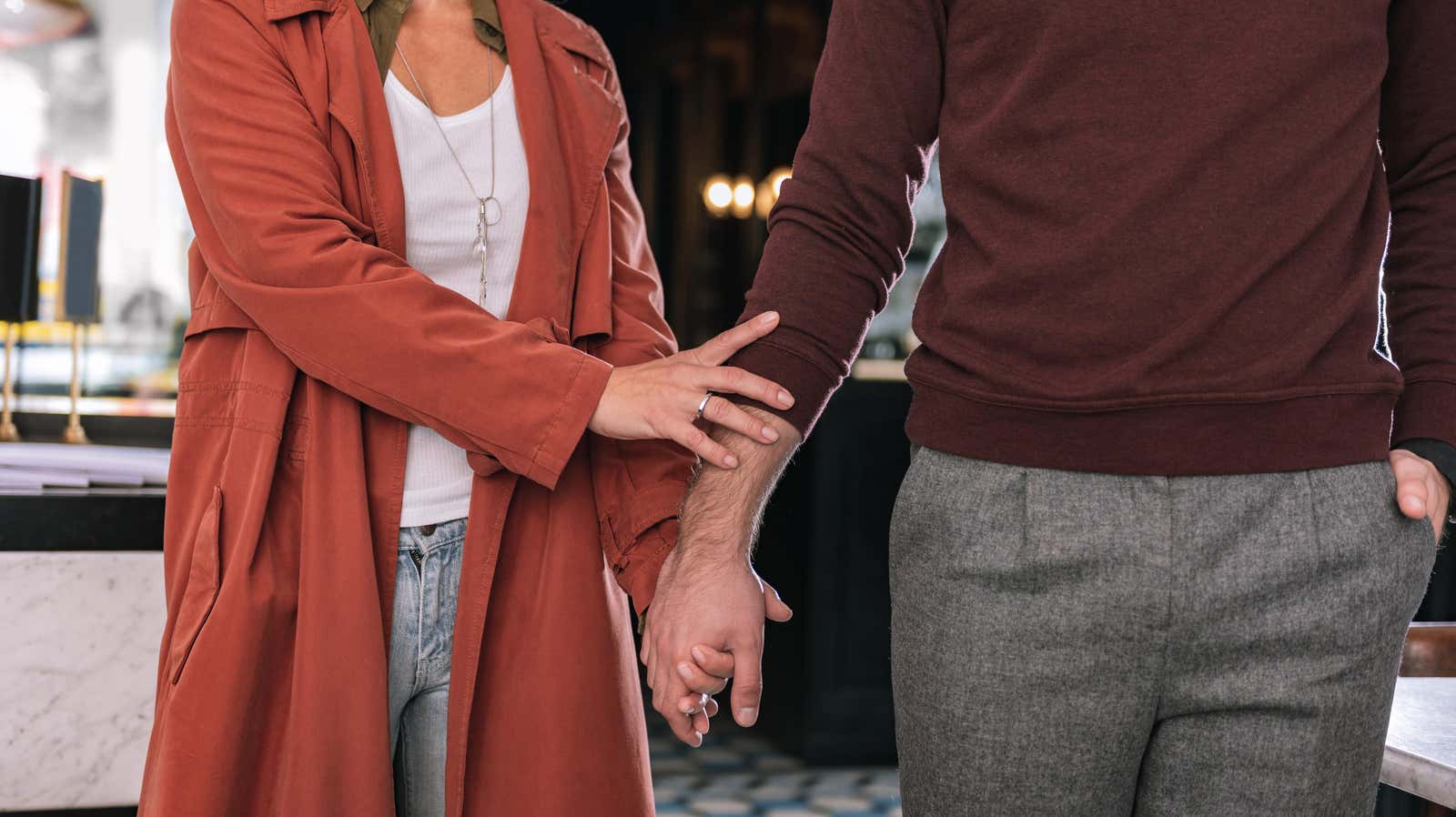Ask Yourself These Questions Before Engaging With a Much Younger Partner

Perhaps age is just a number, but if you’re dating a young partner or thinking about getting involved, it’s important to consider some questions before moving on. Depending on what you want in life and in your relationship—from sexual desires to children to emotional fulfillment—there are important considerations to keep in mind when it comes to dating a younger partner with a significant age difference.
While there are certain hurdles when it comes to dating a younger partner, Dr. Sarah E. Hill , a research psychologist and professor of sex and dating, says, “People who are 10, 20, or more years old can have real romantic relationships. just like people of a closer age.
And despite heteronormative stereotypes (like the classic May-December romance between an older man and a young ingenue), Hill says that an age-gap relationship is a choice open to all.
“It’s not a relationship choice that’s only for straight men or women, cisgender women, or other people who fit the traditional gender binary,” she says.
What will help your relationship move forward – or determine if a connection is a temporary stop on your dating journey – is to be honest with yourself and your partner and ask the right questions.
“Entering this relationship requires honesty and communication on both sides,” Hill says. “These are conversations that can be applied to any relationship with an age gap, including yours.”
Even if chemistry is emotionally charged, consider asking yourself and your new love interest the following questions to see if it really suits you best.
What are my intentions in continuing this relationship?
“Research shows that this is one of the most important questions to ask before getting into any kind of relationship, but it’s especially important to ask if you’re aiming for a non-traditional relationship,” Hill says. “Many enter this relationship with hidden assumptions about what the relationship means. “.
For example, is it a short-term relationship that exists to satisfy sexual fantasies, or does it involve a desire for a real connection with someone?
“Knowing your own intentions will allow you to communicate your expectations and needs to your partner, and will also allow him to communicate his needs to you,” Hill says.
How do I feel about the opportunity to earn more money than my partner?
“In our culture, older age tends to equate to greater earning ability,” Hill says. “Therefore, in most relationships with an age difference, the older partner makes more money.” This is obviously a personal choice, but it’s a good idea to consider what this might mean in your relationship dynamics.
For example, are you comfortable that you can afford to travel and pay bills more often than your partner? If you are able to afford a home during this period of your life, do you agree that you have a partner who may not be in the same financial position as you? If not, then maybe it’s time to stop it.
How will I cope if my younger partner wants to have (more) children?
Many people over 30 already have children, so Hill says it’s important for both men and women who are already parents to consider whether they want to continue expanding their family.
“If they are going into a relationship with a younger partner, do they want to have (more) children? Can they have (more) children? If they can no longer have children the old-fashioned way, how do they feel about non-traditional ways to become parents?
Am I emotionally ready for a relationship that still has stigma around it?
While most Americans report that it’s acceptable for older women to date younger men, Hill says double standards still exist. She cites an Ipsos survey of more than 1,000 Americans commissioned by Cougar Life , a Canadian dating site for powerful women, which found that 71% of men and women acknowledge age-gap relationships led by men, while only 60% agree with this. accepting relationships with age difference led by women.
“It’s important to be realistic about these double standards before you dive into this relationship and make sure you’re prepared for the fact that not everyone will support your decision,” says Hill. “For example, many people assume that these relationships are solely about sex or money. It’s incredibly important that everyone is on the same wavelength regarding the expectations of the relationships of all involved.”
And if you’re someone whose relationships don’t fit into the traditional cisgender or heterosexual relationship confines, Hill says the aforementioned numbers are likely to be even lower. “Regardless of how a person identifies, LGBTQIA or straight, it’s important to be aware of this double standard before diving into these age gap relationships and making sure you are prepared for the fact that not everyone will support your decision.”
How do I see my relationships and life goals evolving over the next couple of years?
“Each of us is a developmental stage, and our needs and desires—both in our relationships, professional relationships, and our relationships with others—change as we grow older,” Hill says. “In a relationship with an age difference, there is a slightly greater risk of possible mismatch, since both parties are at different stages of life. It is important to think ahead to see if there is an expectation that the alignment will continue despite the age difference.”
Because our needs and desires change as we get older, Hill says it’s important to better understand your and your partner’s future expectations, as well as your place.
So before you develop a relationship, be clear about your goals in life and relationships, and be honest with yourself: is your partner really living up to them? It is important for you to stay true to what you want from your partner, regardless of age.